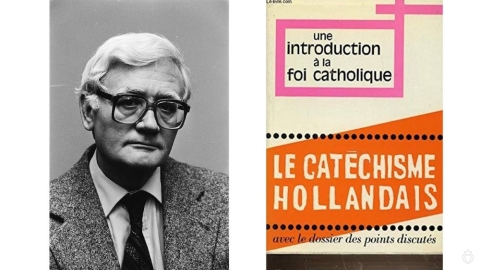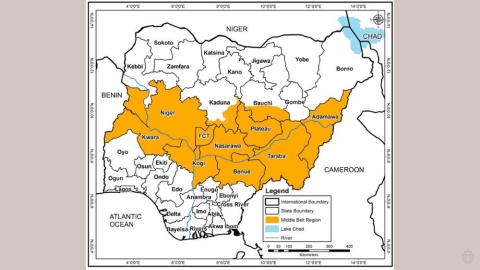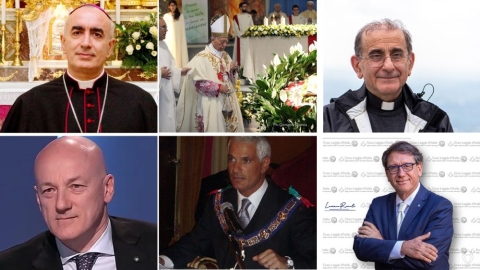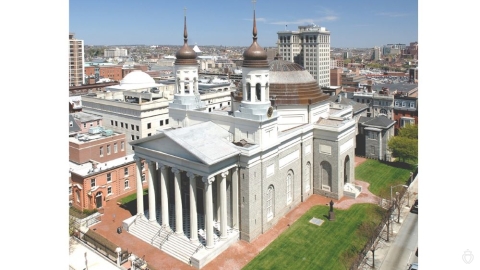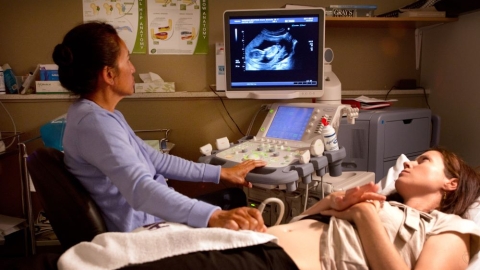UK: Marriage Is Disappearing

Marriage in the UK is in steep decline, with possible extinction in the second half of this century, a recent census reveals. This phenomenon, recognized for a long time, is the sign of a real social revolution. Frank Young, director of the Civitas think tank, supports this conclusion in an article published on the Institute for Family Studies website.
Last year, Civitas, which conducts studies on children and family, analyzed marriage trends over a 50-year period and concluded that marriage will all but disappear by 2062. In 2062 there will be one couple per 400 adults in the UK (0.52% of the population aged over 16), compared to one couple per 100 adults today, a drop of more than 70% in two generations. This represents 67,000 couples getting married in 2062, compared to 213,000 in 2019.
In 2021, 46.9% of people in England and Wales were married, as opposed to 49.4% in 2011. In 1991, around 37% of women aged 20-39 fell into the 'never married' category, compared to 58.6% in 2011 and 65.7% in 2021.
Cohabitation is increasing in all age groups under 85. The increase in cohabitation for couples aged 25 to 34 living together is 27% between 2011 and 2021. It is during these years that couples are expected to start a family.
Like many other countries, Young explains, the UK has responded to criticism that marriage is depassé and outdated by creating a new type of marriage called a “civil partnership.” But the UK census shows civil partnerships have failed spectacularly.
Couples in civil partnerships represent less than half of one percent (0.45%) of all marriages and civil partnerships. The same is true for more recent so-called “homosexual” marriage: the latest census shows that it represents 0.6% of all marriages. Unfortunately, the remaining 99.4% is not subject to any public debate.
In contemporary Britain, looking at the country as a whole hides important differences according to ethnicity and religion; UK demographics are changing rapidly and wedding trends reflect this. Among Christians, Jews, Muslims, Hindus, and Sikhs, there are 24% more marriages and 21% fewer divorces than among those with no religion. The census reports a clear increase in the number of people without religion: a quarter more than during the last census in 2011.
Although the UK is moving away from marriage, the decline is not evenly distributed. There are big geographical differences. The difference is in income and ethnicity. Britain's leading marriage advocacy organization, the Marriage Foundation, has long pointed to a growing “marriage gap” between rich and poor.
The UK Office for National Statistics (ONS) reports annually on the decline in marriage. 2021 was the first year in which more babies were born to cohabiting couples than to married couples. The latest statistics from the ONS show marriages are at an all-time low. It will be the same next year.
Since its inception in 2013, the UK Treasury has not spent enough money on the marriage allowance, a meager tax relief for married couples with middle or low incomes. Marriage is a political taboo in Westminster; few politicians advocate the most stable type of family we have.
Frank Young concludes: “We urgently need a marriage bailout in Britain, and the first step will be for policy makers to recognize that we have a problem.”
(Sources : IFS/Frank Young/InfoCatolica – FSSPX.Actualités)
Illustration : Photo 151338924 © Serezniy | Dreamstime.com
